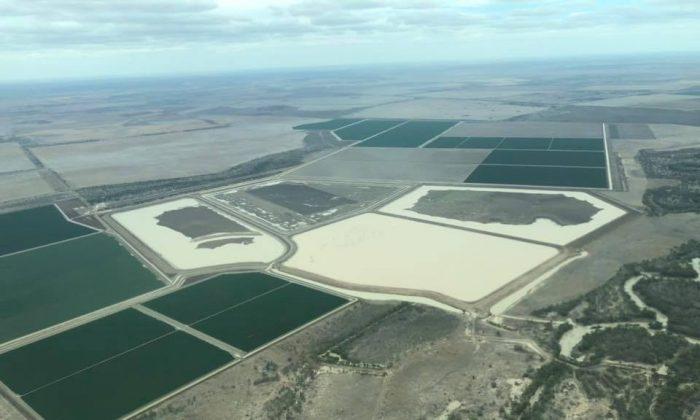Australian cotton growers are facing uncertainty around this year’s crop after reports from Beijing indicate that the Chinese regime has told its domestic spinning mills to stop using Australian cotton or they will face punitive actions. The Chinese regime has also informed the Australian industry it could soon face tariffs of up to 40 percent.
“Our industry’s relationship with China is of importance to us and is a relationship we have long valued and respected. To now learn of these changes for Australian cotton exports to China is disappointing, particularly after we have enjoyed such a mutually beneficial relationship with the country over many years,” the statement read.
Responding to the news, Agriculture Minister David Littleproud said the cotton industry was significantly concerned about the Chinese regime’s actions.
“We are working as quickly as we can with the industry to get an appreciation of the scale and the veracity of this,” Littleproud said.
He called on China to respect international trade rules and to engage with Australia.
“We’re playing under a fair marketplace. We expect everyone that trades with us to do the same,” Littleproud said.
“Australia backs all of our farmers and producers to compete on the world stage in a fair and competitive manner. That’s why we’ve been such a successful exporting nation, and more than 30 consecutive months now of Australia exporting more than we import as a country,” he said.
Birmingham also noted the government would continue to back all Australian exporters so they could “compete fairly and squarely, without facing discrimination in any corner of the world.”
Previously, exports of beef, barley, and wine have been targeted by the Chinese regime in what experts and the United States have deemed economic coercion. There are also unconfirmed reports that Beijing is compelling Chinese manufacturing to slow down on coking and thermal coal imports.
Australian cotton producers export an estimated $800 million worth of cotton to Chinese mills each year.
The company, which went into administration on July 2, owes about 140 creditors including from Central Queensland to the Riverina area in New South Wales.
However, Cotton Australia and ACSA noted that despite the changes to the industry’s export conditions, the industry may not be down for long as it has positive relationships with the many other countries.
“Our crop is in strong demand internationally and can attract a price premium due to its high quality, excellent sustainability credentials, reliability and a proven track record in meeting manufacturer and consumer needs, including in China,” the statement read.
The fall in purchasing may also have a smaller impact on the cotton industry, given last year’s harvest was smaller due to the drought.
Commodity analyst Charles Clack from Rabobank, the world’s leading financial services provider for the food and agribusiness sector, believes that due to lower production places, Australia was the only major exporter that did not build stockpiles from the previous season.
“As demand recovers post-pandemic, this means the domestic market will not be burdened with carry-over cotton,” Clack told The Epoch Times.
However, Clack noted that currently there is an oversupplied global market, so the benefit is limited.”




